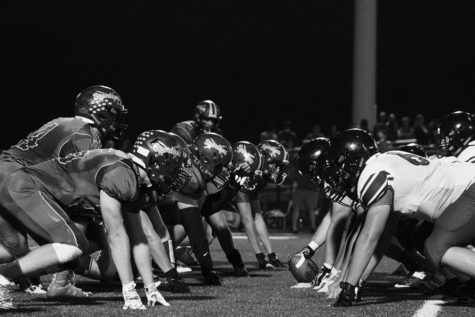CSL introduces policy to manage hate speech incidents

During a tennis match in 2014, an opponent from Barrington served to Glenbrook North senior Florence Kang, who was a sophomore at the time. After the ball landed and a slight pause, Kang called it out. Recognizing Kang’s hesitance, the Barrington players argued about the call and made a racist remark about Kang’s Asian ethnicity impairing her ability to see the ball.
“I was shocked,” said Kang. “I didn’t process her saying it at first, but later I realized how rude it was. Why did she have to bring my race into it?”
Noticing the disagreement but unaware of the opponent’s racist comments, Kang’s coach awarded the point to Barrington due to Kang’s initial hesitance to make the call. Kang’s opponent did not receive any consequences during the match for the racist comments she made.
Evanston Athletic Director Chris Livatino said he has come across many incidents similar to Kang’s.
“There probably hasn’t been a year where I haven’t dealt with some issue related to racist or homophobic or anti-Semitic language being used between opponents at a sports contest, and I’ve been doing this for 11 years,” Livatino said.
In response to these many incidents, Livatino said he wrote a rough draft of a new policy, which sets the guidelines of what should happen when an incident of hate speech occurs. According to the protocol, hate speech includes any derogatory comments, gestures or displays directed toward opponents concerning race, religion, ethnicity or sexual identity.
Livatino first presented the policy to the Central Suburban League athletic directors in November, 2015. After many revisions and receiving feedback from school principals and conference officials, the Hate Speech Protocol was made official in May, 2016 but was first put into effect this fall.
“The hope behind the rule for me personally is that it will force a conversation to be had … and force [athletes, coaches, athletic directors and school communities] to recognize if we’re adopting something like this, [it] is an ongoing issue, and we all have to take a look in the mirror and figure out what role we’re playing to contribute to that and maybe start [to make] some changes,” Livatino said.
Before this new protocol was introduced, there were no specific instructions as to how incidents of hate speech should be handled.
Kang said because there was no hate speech protocol in place during her match, she wasn’t sure how to deal with the situation and did not tell her coach.
The new protocol now enforces strict regulations for how contest officials should manage incidents involving hate speech.
“If an event does take place on a field [or] court, the coaches and the officials are all on the same page with how they’re supposed to handle that situation, which in the past has always been different,” Livatino said.
According to the official Hate Speech Protocol document, when an athlete hears a hateful comment, he or she reports what was said and by whom to his or her coach. The coach then notifies the official, and the official stops play and meets the coaches of both teams. The coach of the alleged offender and the official then meet with the offender and asks whether the comment was made. If the alleged offender admits to saying it, he or she is ejected from the contest and suspended one additional game. However, if the allegation is denied, he or she is issued a warning.
Livatino said he understands the protocol may draw concerns about slowing the tempo of contests in which hate speech allegations occur but thinks the issue goes beyond the game.
“[Hate speech] is not an issue we should ignore any longer,” said Livatino. “There’s too much at stake with the society we live in today for people to [not] understand the importance of one another’s boundaries and backgrounds, and if we can’t learn to treat each other with respect in the most heated moments and in the quietest moments, then we’re never going to develop better as a society.”
According to GBN Athletic Director John Catalano, with the rule only being introduced this year, the effects of it on sporting events have yet to be seen.
“I think we’ve done a pretty good job of talking about it and explaining it here at Glenbrook North,” said Catalano. “I think by raising that awareness, it will diminish the number of incidences we’ve had.”
Similarly, Kang said she is hopeful the protocol will have a positive effect on sporting contests.
“With the new rule, I hope sports will be more about playing and less about the other team,” Kang said.

